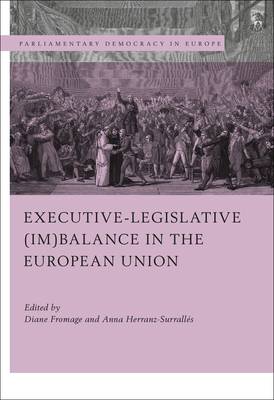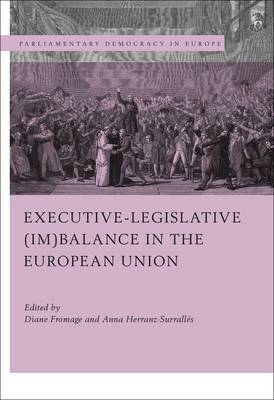
- Retrait gratuit dans votre magasin Club
- 7.000.000 titres dans notre catalogue
- Payer en toute sécurité
- Toujours un magasin près de chez vous
- Retrait gratuit dans votre magasin Club
- 7.000.0000 titres dans notre catalogue
- Payer en toute sécurité
- Toujours un magasin près de chez vous
Executive-Legislative (Im)Balance in the European Union
115,45 €
+ 230 points
Description
Ten years after the entry into force of the Lisbon Treaty, has executive predominance in EU-related matters disappeared? How have executive-legislative relations in the EU evolved over a crisis-ridden decade, from the financial and migration crises, to Brexit and the COVID-19 pandemic?
The Lisbon Treaty could be expected to lead to the re-balancing of powers in favour of parliaments, for it significantly enhanced the roles of both the European Parliament and national parliaments. A decade later the contributions to this edited volume examine - for the first time in such an extensive breadth and from a multi-level and cross-policy perspective - whether this has actually materialised. They highlight that diverging tendencies may be observed, and that important variations over time have occurred, depending particularly on the occurrence of crises. As stated in the fascinating epilogue by Peter Lindseth (University of Connecticut School of Law), this is an 'admirably coherent collective volume, whose contributions provide an excellent overview of key aspects of executive-legislative relations in the European system since the Treaty of Lisbon'. This edited volume will hence be of interest to both academics and practitioners interested in future reforms designed at the European and national levels to improve the EU's democratic quality.Spécifications
Parties prenantes
- Editeur:
Contenu
- Nombre de pages :
- 360
- Langue:
- Anglais
- Collection :
Caractéristiques
- EAN:
- 9781509944514
- Date de parution :
- 20-10-22
- Format:
- Livre broché
- Format numérique:
- Trade paperback (VS)
- Dimensions :
- 170 mm x 244 mm
- Poids :
- 566 g

Les avis
Nous publions uniquement les avis qui respectent les conditions requises. Consultez nos conditions pour les avis.





